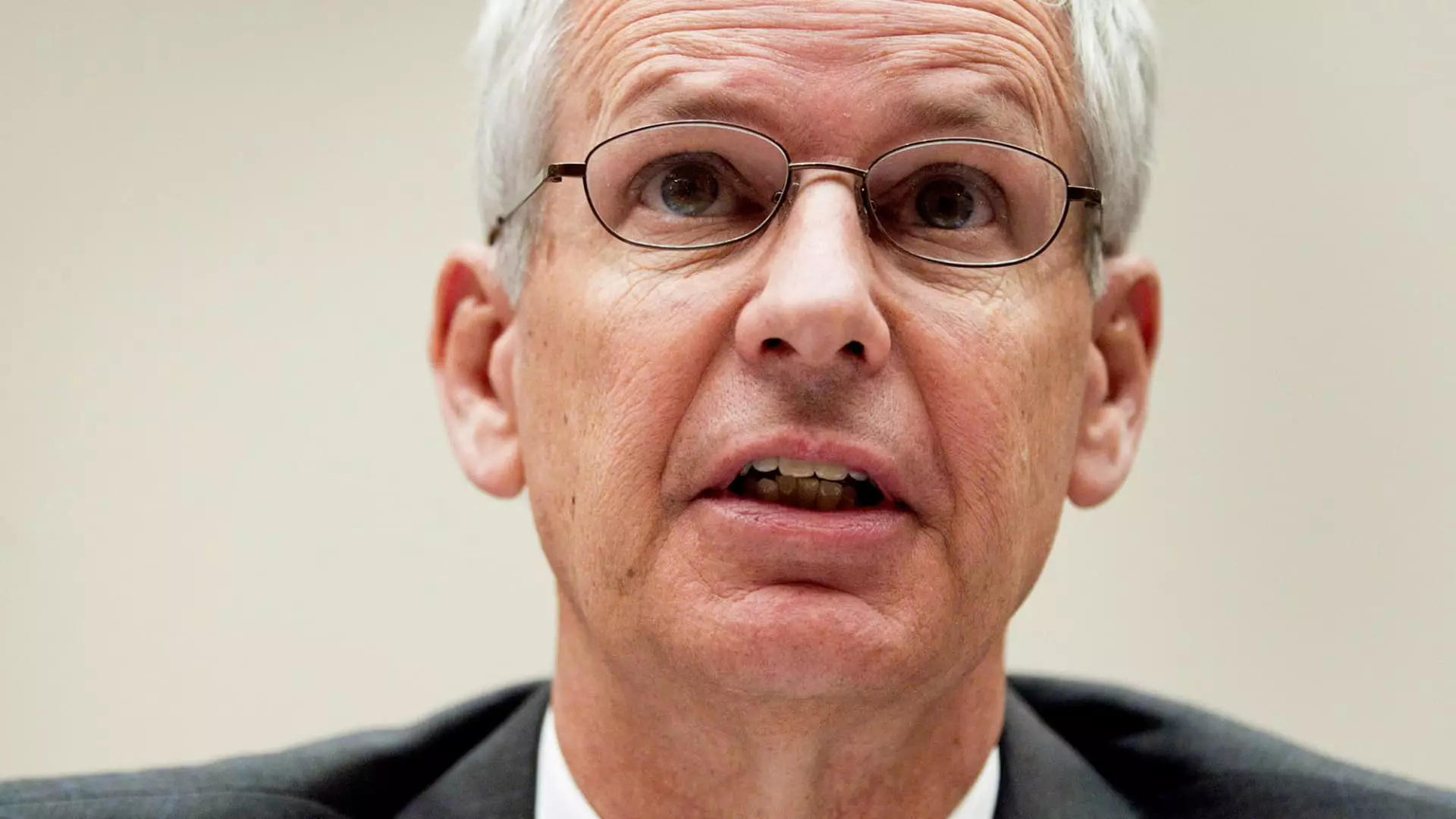Dish Network’s trajectory over recent years has drawn uncanny parallels to the much-criticized series finale of “Seinfeld,” a cultural phenomenon renowned for its complex narrative structure yet ultimately criticized conclusion. Just as the infamous finale left viewers dissatisfied, Dish’s own strategic journey seems to culminate in a sense of underwhelming conclusion. The company’s struggles highlight significant shifts within the broader media landscape, marked by rapid technological advancements and evolving consumer preferences.
Back in 2011, Dish co-founder Charlie Ergen likened his company’s challenging navigation through mixed business models to the storytelling approach of “Seinfeld,” suggesting that while numerous plot lines may be unfolding, they would coalesce into a clear purpose by the end. However, as the years rolled on, Ergen’s metaphorical optimism gave way to a grim reality where the final chapter for Dish is more reminiscent of a poorly executed plot twist than a masterfully woven narrative.
The company’s recent decision to sell to DirecTV for a meager $1, while also transferring nearly $10 billion in associated debts, signals the culmination of a prolonged decline. This move has sent shockwaves through the market, reflected by an 11% drop in EchoStar shares, parent company to Dish, underscoring the waning confidence in their business model.
The media consumption landscape has undergone a seismic shift in recent years. As streaming services continue to disrupt traditional cable and satellite offerings, Dish has found itself bleeding subscribers at an alarming rate. The combined loss of 63% of video subscribers since 2016 is emblematic of a larger trend, where consumers are gravitating towards more flexible, on-demand mediums. The emergence of players such as Comcast and Charter, which incorporate high-speed internet along with content offerings, has further complicated Dish’s sales trajectory.
EchoStar’s CEO, Hamid Akhavan, acknowledged this troubling trend in a recent interview, articulating the high-speed decline of content distribution businesses. The era of satellite television, once celebrated for its broad range of channels and programming, now feels increasingly obsolete, echoing the sentiments of “Seinfeld” fans who longed for a more gratifying conclusion.
Dish’s aspirations to reframe itself as a comprehensive nationwide wireless provider have not come to fruition. Despite efforts to purchase spectrum licenses and develop a competitive wireless network through acquisitions like Boost Mobile, the company has consistently struggled to secure necessary capital. The extensive costs associated with transitioning a pay-TV entity into a wireless competitor have created competitive disadvantages against giants like AT&T and Verizon, whose resources and established networks far outpace those of Dish.
Akhavan’s remarks about the firm’s historically diffuse focus underline a pressing issue: management’s inability to concentrate on core business objectives. Just as “Seinfeld” critics lamented the series’ lack of a cohesive finale, so too can observers note how Dish’s multi-directional strategy hindered clarity and coherence in its business model, diverging into tangents without ever achieving a meaningful resolution.
As EchoStar and Dish reunite after a lengthy estrangement, the decision appears driven more by desperation than visionary strategy. With looming deadlines on significant debt payments, the urgency to consolidate assets might overshadow any potential future innovations. EchoStar’s earlier evaluation of Dish and DirecTV highlighted the latter’s considerable market capitalization compared to Dish’s shrinking value. The current context presents a stark contrast, signaling a once-robust tennis match now concluded in a lopsided score.
This movement to consolidate, however, may not lead to a renaissance for Dish, but rather a reminder of its decline. Serial missteps, exacerbated by an increasingly competitive landscape, have led to a narrative fraught with disappointment—one that increasingly resembles the aftermath of a beloved sitcom’s disappointing finale.
The story of Dish Network is a powerful reminder of the importance of adaptability in an ever-evolving marketplace. As viewers of “Seinfeld” pined for a more satisfactory finale, so too do consumers and stakeholders watch closely as Dish writes its next chapters. Without a clear and compelling vision for the future, the company risks being reduced to a footnote in the annals of media history—an all-too-familiar arc that began with promise yet fell victim to straying too far from its strengths.

